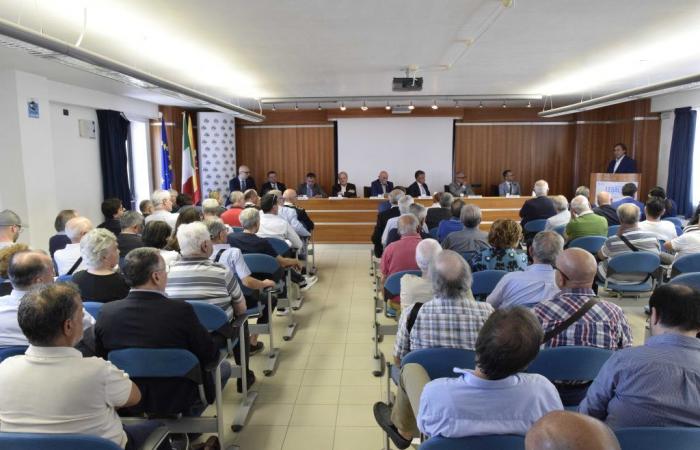“Management and concreteness. Where we operate the State works. On the contrary, where we do not operate, there are shortcomings. This is a reflection that I invite you to make because the ability and dynamism with which we do business and which provides development can help us determine the directions of growth. It being understood that we cannot be satisfied with this GDP. Our potential, the potential of our businesses, is greater.” This was said by Otello Gregorini, national secretary of the Cna, speaking yesterday morning at the “Day of legality in the economy and business” organized by the trade association at a territorial level in the headquarters in via Psaumida to honor the memory of the unforgettable manager Pippo Tumino 14 years after his death. A great moment of discussion, with the presence of representatives of the police forces, institutions and politics, as well as naturally with the owners of the associated small and medium-sized businesses, which served to shine the spotlight on a topical issue.
“We are extremely convinced – said the Cna Ragusa territorial secretary Carmelo Caccamo, at the beginning – that legality is an objective to strive for without hesitation, starting from the culture of work”. Then spoke the director of the diocesan Caritas, Domenico Leggio, representing the bishop Giuseppe La Placa, the councilor of the Prefecture Andrea Milana, representing the prefect Giuseppe Ranieri, the first director of the Anti-crime division of the Ragusa Police Headquarters, Rosario Amarù, representing of the police commissioner of the province of Ragusa Vincenzo Trombadore. And, again, the general director of the Free Municipal Consortium of Ragusa, Nitto Rosso, who brought the greetings of the extraordinary commissioner Patrizia Valenti, the mayor of Ragusa, Peppe Cassì, the regional deputies Nello Dipasquale and Stefania Campo. Also present were the mayor of Giarratana, Lino Giaquinta, the deputy mayor of Vittoria, Giuseppe Fiorellini, the municipal councilors of Ragusa Mario D’Asta, Gianni Giuffrida and Giorgio Massari. Among those present were also that of the Cna national vice-president Pippo Cascone and the Cna Sicily regional president, Nello Battiato. The regional secretary of Cna Sicily, Piero Giglione, asked to “amend law 512 of 1999 which provides for a rotation fund for solidarity with the victims of mafia-type crimes. A regulation that is now affected by the passing years – he underlined – given that on the one hand the economic resources are few and on the other hand it is necessary to deal with an exasperated bureaucracy which ends up attenuating, if not actually canceling, the beneficial effects of this norm”.
The testimony of the president of the territorial Cna of Ragusa, Pippo Santocono, was touching, as he recalled when, years ago, his company was forced to live through a difficult period as he himself had been subjected to a hail of threats from criminals who made it difficult for him to move forward. “But – he continues – we didn’t give up. And, fortunately, everything was resolved in the best way.” It was then the correspondent of the newspaper “La Sicilia”, Mario Barresi, who moderated a two-way debate (the judge Giuseppe Ayala, whose presence had also been announced, was absent for serious health reasons) between the president of the regional Anti-Mafia commission, Hon. Antonello Cracolici, and senator Salvo Sallemi, member of the national Anti-Mafia commission. “The mafiosi – said Cracolici – are as if they were seeking the complicity of those extorted in their extortion activity. In some neighborhoods of Palermo the mafiosi do not engage in those activities which, so to speak, are linked to anti-racket associations. Whoever does not report, therefore, is always wrong.” “The mafia – highlighted Sallemi – has very high costs for the community. In one year, every citizen is forced, even if he doesn’t realize it, to pay a surtax of 1,500 euros each. This data alone would be enough to highlight how criminal distortions can drug the economy. Appropriate countermeasures are necessary. And we are trying to adopt them.”




